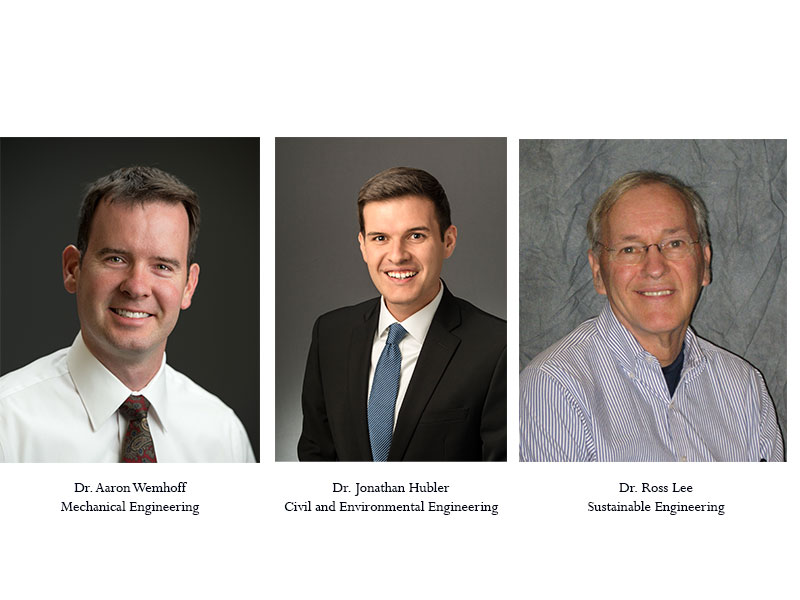Villanova Engineering Earns Manufacturing PA Innovation Program Awards

Pennsylvania Governor Tom Wolf recently announced the approval of $1.7 million in grants through the Manufacturing PA initiative. The 26 projects receiving the funding—which include three at Villanova University—will spur new technologies and processes in the manufacturing sector.
“There is a direct correlation between manufacturing innovation and economic growth,” Governor Wolf said. “My administration continues working to foster a robust innovation culture and strong partnerships between academia and the business sector across the state. Working together, we are positioning Pennsylvania as a manufacturing leader in the nation.”
The approved projects are part of Manufacturing PA’s fellowship program. With faculty as the principal investigators, the program embeds the commonwealth’s best and brightest graduate and undergraduate students with local manufacturers. Once paired, the students embark on research projects to develop new technologies and advance innovation statewide in several sectors of manufacturing, from advanced medical, to energy, to consumer goods. Universities that have partnered with a manufacturer can apply for and receive between $25,000 and $70,000 in funding for specific student research projects.
The Manufacturing PA fellowship was developed through collaboration with Pennsylvania’s seven research institutions, manufacturers, and industrial resource centers across the commonwealth and is administered by the Department of Community and Economic Development.
Villanova’s College of Engineering was awarded funding for the following:
Compressed Metal Foam-Based Cold Plates for Refrigerant-Based Electronics Cooling
Dr. Aaron Wemhoff, associate professor, Mechanical Engineering and current graduate student Lucas Arrivo ’19 ME, with QuantaCool Corp., Chadds Ford, PA. $50,336
Explore the influence of metal foam properties on microevaporator cold plates (MCPs). Compressed metal-foam-based MCPs could provide a less-expensive tool and more effective means than traditional air cooling to remove the heat from computer servers in data centers.
Evaluation of Field Performance of Steel Fin Pile Foundations
Dr. Jonathan Hubler, assistant professor, Civil and Environmental Engineering, with Mission Critical Solutions, Alum Bank, PA. $69,591
Provide new data for steel fin pile foundations engineering performance and load capacity compared to the conventional alternatives. Steel fin pile foundations utilize fins on the side of the piles to develop significant frictional resistance between the soil and the finned pile. The fins serve the purpose of increasing lateral and torsional resistance of the pile.
Manufacturing Process Optimization for Food and Biosolids Waste Conversion to Valuable Products Dr. Ross Lee, professor of practice, Sustainable Engineering and graduate students Gonzalo Sanchez and Lora Urbaniak, with SoMax BioEnergy LLC, Spring City, PA. $68,772
Establish optimized hydrothermal carbonization process conditions, which will convert waste water treatment solids and food waste into hydrochars and liquid by-products, which are suitable as solid fuel or as intermediate feedstocks for further upgrading into value-added products to be used for water and gas cleaning treatments.
